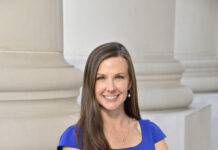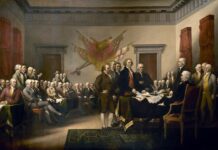Students representing countries from around the world convene in an assembly room, drafting resolutions, negotiating compromises, and engaging in heated debates over the merits of strategies to resolve pressing global issues. The mass of high school students taking the roles of diplomats from a multitude of nations could pass for a conference of the world’s largest intergovernmental organization.
This is Model United Nations, or Model UN for short, (officially the United Nations Association of the United States of America), a simulation of the global organization that promotes international cooperation by protecting human rights, promoting social and economic development, and providing humanitarian aid in the wake of natural disasters or conflict.
At the beginning of the month, some of these mock delegates were Jesuit students from the Model UN club, participating in a day-long conference in San Antonio, TX. An academic extracurricular club, Jesuit’s chapter of Model UN is moderated by Mr. Brandon Bub ‘10, who said the students have an opportunity to “learn about the diplomatic process, how deals get made, how to win people over a coalition, about how to write a resolution of substance, and basically how to do the nitty-gritty work of politics.”
Model UN is a nationwide organization dedicated to teaching students the inner workings of international diplomacy, and providing them with opportunities to explore the history, geography, culture, economic status, and foreign policy of countries around the world by presenting them with the same global challenges that world leaders face daily.
“Ultimately, the goal is to pass resolutions, dealing with global issues like public health or avoiding war…and to try and hash out solutions,” Bub said. “It’s all about trying to be faithful to what your assigned country or person would do in that situation. If you were simulating Communist China then it’s unlikely that you are going to forge a strong alliance with the US on most issues.”
Depending on the various simulation conferences, the students simulate delegates in a particular conference, such as the United Nations General Assembly or the Security Council, or participate in a historical simulation, such as discussing the Rwanda crisis in 1994. “You want to try to do it better than we actually did in history,” Bub said.
In their most recent foray into simulated politics, the Jesuit Model UN group represented Slovakia in the General Assembly. “The goal was to, as Slovakia, find a solution to a global issue,” Sam Powell ‘17 said. “In this case, we contributed ideas to what Slovakia can do to minimize the problem of open defecation in poverty-stricken areas throughout the world.”
“Each country’s delegates formed caucuses to form resolutions, and then to debate the merits of each before voting on the proposed resolutions,” Powell said, “and my caucus’ resolution was actually passed.”
“These guys are very serious and very committed, and we were able to win a few awards,” Bub commented on the success of the event.
Bub said the group would like to attend more conferences outside of the D/FW area. “If we continue to get larger and raise funds, we could go to places like Chicago or New York” to participate in even bigger conferences. “One of our goals is to try to fundraise more for next year,” said Bub. “We’re just trying to get our name out there and tell kids that this is a cool club that you can do.”






